
OK, you see a blizzard of feathers, the entire mortal remains of a Wood Pigeon that once proudly flew the woods, jauntily sailing away from a mere human. Who did it – Sparrowhawk or Fox? You might think it impossible, given that both eat most of their quarry, leaving little but bloodied feathers.
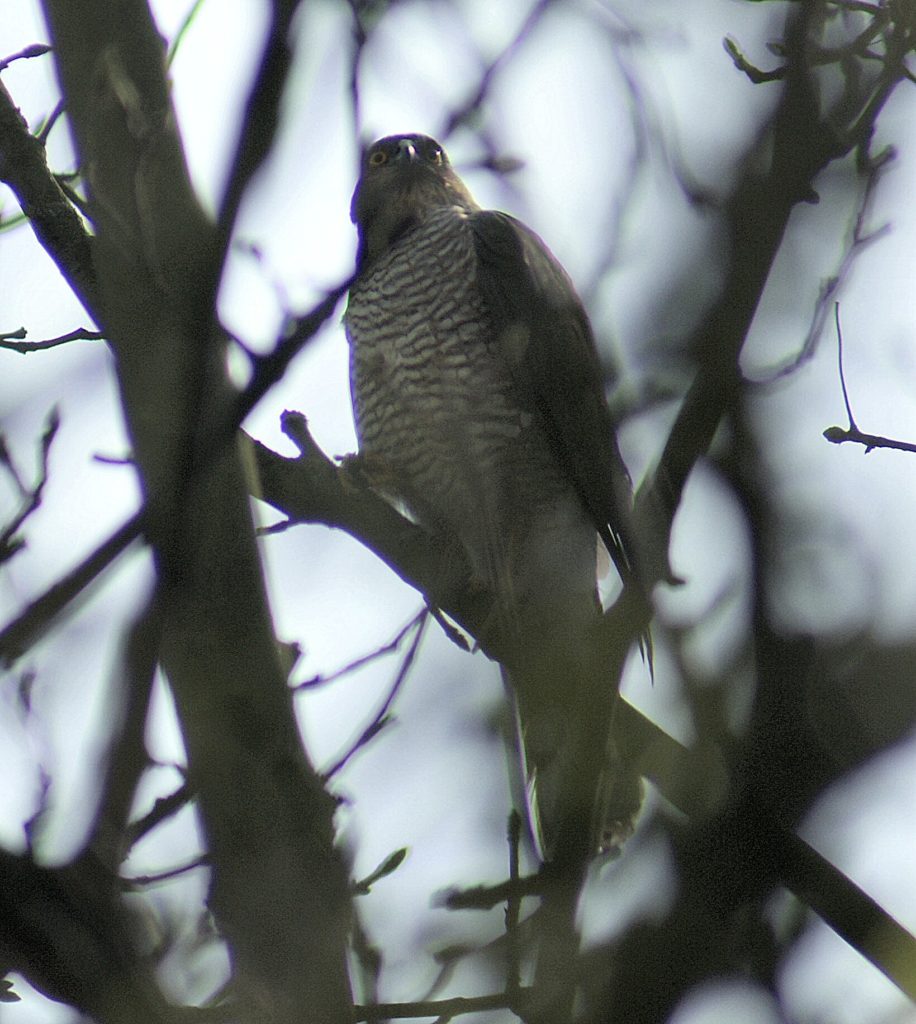
Sparrowhawk in Gunnersbury Triangle
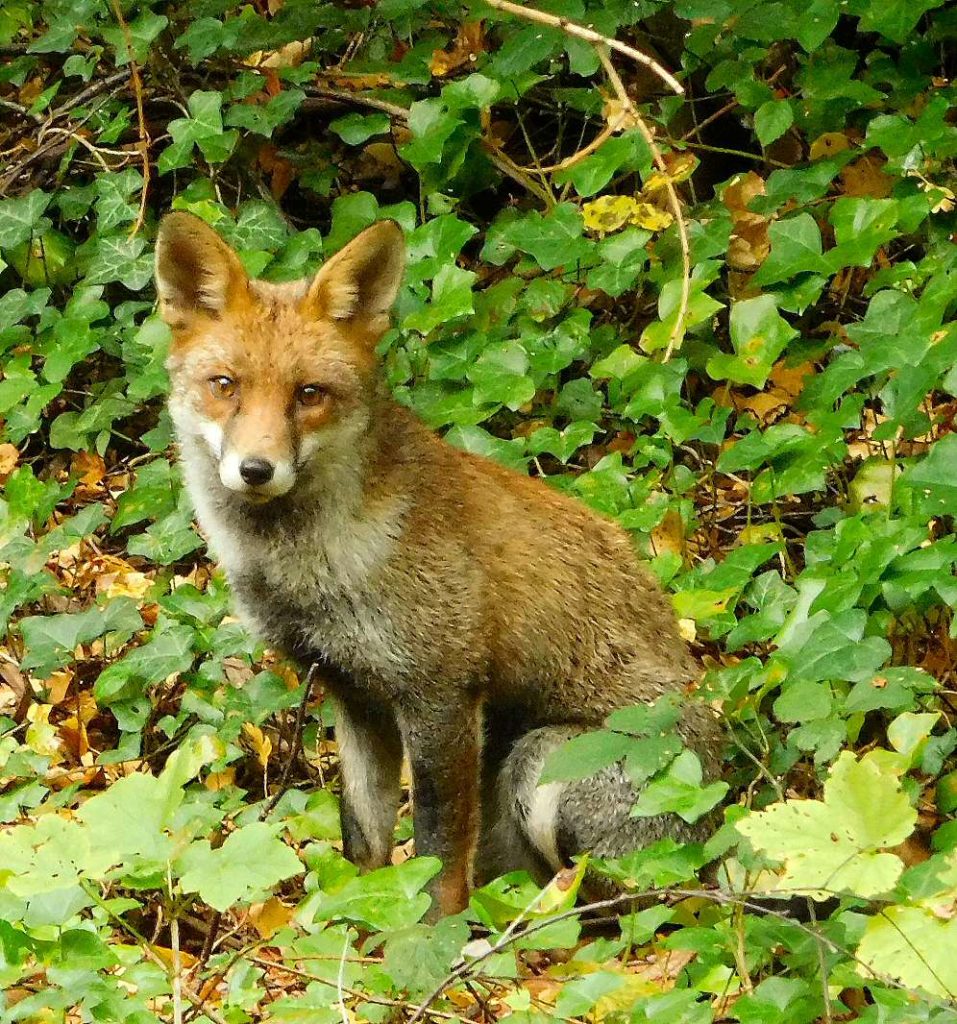
Red Fox in Gunnersbury Triangle
But you’d be wrong. Each leaves distinctive clues in the debris of their dastardly deeds.
How would one tell if the brutal murder was the Butler with Carving Knife in Pantry, or Doctor with Stethoscope Hose in Library? (with apologies to Cluedo) Or rather, Sparrowhawk with Beak and Claw in Mid-air Murder, or Fox with Teeth in Ambush from Shrubbery? Here’s how to be a wildlife detective …
Sparrowhawk with Beak and Claw in Mid-air Murder
The Sparrowhawk has no teeth; and it doesn’t like to eat feathers. So, it grips each one, and boldly plucks it from the dead prey, leaving whole feathers – the shaft tapering to a point that was once inside the bird’s skin – neatly removed, each in one piece.
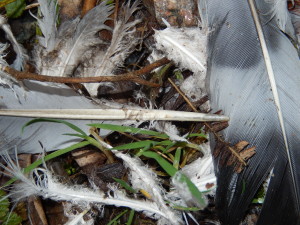
Fox with Teeth, Ambush in Shrubbery
The Fox, however, wastes no time on single feathers, biting off and spitting out fluffy mouthfuls as quickly as he can. They may be bloodied, as below, when the skin gets torn, but the feathers generally have broken shafts.
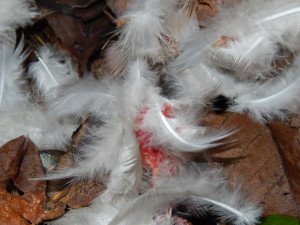
The overall effect is still a blizzard of feathers, all that remains of the ex-Pigeon. But, though the Pigeon is no more, its traces indicate quite clearly whodiddit.
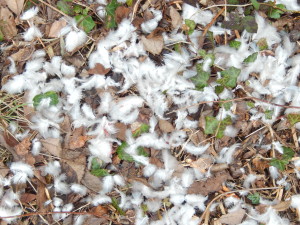
Now you know.
Sentimentality
There is a sad little postscript to this tale. Near both murder sites was a scatter of bird-seed. Some kind, well-meaning person, perhaps lonely, perhaps seeking friendship, had put out some food for the pigeons to eat in the cold weather.
Well-meaning, but unwise. The pigeons became accustomed to feeding on the ground … in poor light … without looking about them too much … and fell victim to two keen, hungry, unsentimental predators.
